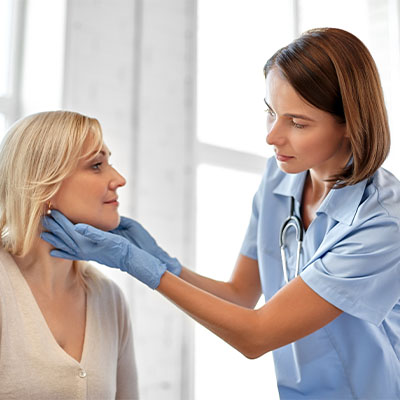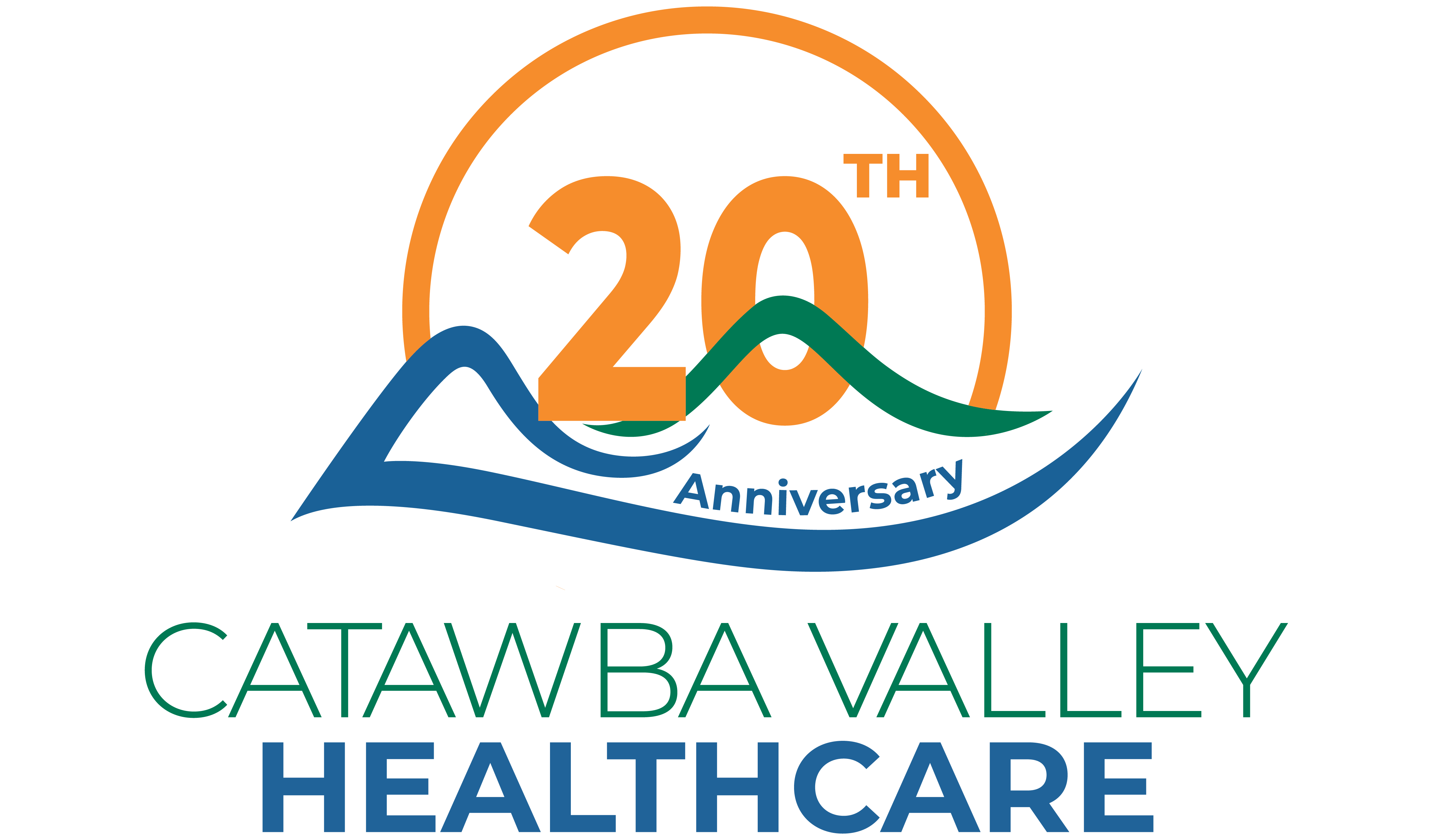Wellness Exams &
Preventive Medicine
Wellness Exams & Preventive Medicine
Our primary care providers at Catawba Valley Healthcare are committed to providing the best treatments for acute and chronic medical conditions.
We are also committed to preventive medicine–the promotion and facilitation of ongoing physical and mental wellness to prevent medical health problems whenever possible.
Preventive medicine is the foundation of our wellness exams. These annual exams help us deliver early medical treatment whenever we can to reduce the impact of disease, mental health illnesses, and other health problems when they do occur.
Together, preventive medicine and wellness exams emphasize:
- Maintaining wellness
- Preventing health problems before they occur
- Delivering early treatments when diseases, injuries, or mental health issues present to reduce their impact as much as possible

What is Preventive Medicine?
Preventive medicine and preventive healthcare focus on disease prevention by taking proactive steps such as screenings, lab tests, and other diagnostic measures.
Disease and disabilities are usually affected by a complex combination of genetic predisposition, disease agents, environmental factors, and lifestyle choices or practices. These complex processes can occur before an individual is even aware of symptoms.
Preventive medicine focuses on the anticipation of medical conditions, early detection, and early action to prevent or lessen the impact of medical illnesses, brain illnesses, and mental health issues.
Some examples of preventative care include:
- Screenings for high blood pressure, high cholesterol, and diabetes
- Cancer screenings such as mammograms, colonoscopies, and skin checks
- Counseling on weight loss, smoking cessation, alcohol reduction, depression, anxiety, and healthy eating habits
- Annual wellness exams, from birth throughout adulthood
- Anticipating the inevitable changes and needs that occur with aging or chronic diseases and managing these needs as well as possible
What is a Wellness Exam?
A wellness exam is an annual preventive healthcare visit with a primary care provider that helps patients and their providers stay both current and proactive on all health care issues.
Here at Catawba Valley Primary Care, our wellness appointments with a primary care provider consist of the following:
- Measurements of height, weight, blood pressure
- Pulse and oxygen level reading (pulse oximetry)
- Listing and updating of all prescription drugs and supplements taken
- Review of medical and family history
- Listing and updating of all medical providers, including specialists, counselors, and physical therapists
- Discussion about any health and medical concerns or changes, and referrals to specialists when needed
- Medical record review to determine if a physical exam or labs (blood or urine) need to be scheduled
- Establishment and maintenance of a schedule for preventative cancer screenings such as mammograms and colonoscopies
- Evaluation of cognitive and mental health variables
- Discussion of current health habits and the delivery of personalized professional health advice, including review of tobacco and alcohol use, risk of sexually transmitted infections, diet, and exercise habits
Women Wellness Exams
Women wellness exams include all items in a general wellness exam plus additional gynecological and reproductive exams. Sometimes women choose to visit a gynecology specialist for gynecological and reproductive exams, but primary care providers can give these exams, too, as part of a women’s wellness exam as we do here at Catawba Valley Primary Care.
The following gynecological exams are typically part of a woman’s wellness exam and are critical to ensure your optimal health and wellbeing:
- A Breast exam is done to detect any lumps or skin abnormalities that could indicate breast cancer or other breast concerns.
- A Mammogram is typically done starting at age 40. Your provider will refer you to a mammogram center for breast x-rays.
- A Pelvic exam of the vaginal, vulva, and cervix areas checks for any abnormalities that might indicate cancer, sexually transmitted diseases, or any benign conditions.
- Pap and HPV screenings are given to detect the presence of any abnormal cellular activity in cervical tissues.
Read more about women wellness exams at our primary care practice for a detailed description of all screenings, labs, and exams involved.
Men Wellness Exams
Male wellness exam include all items in a general wellness exam with additional attention to some of the following screenings and exams particular to men:
- Lipid screening for men 40 to 75 years of age
- Testicular exam to detect any lumps, tenderness, or changes in size that could indicate a cancerous growth
- Hernia exam to check for any weakness in the abdominal wall between the intestines and the scrotum
- Penis exam to detect any warts or ulcers, signs of sexually transmitted infections
- HIV screening for individuals at risk for HIV (human immunodeficiency virus)
- One-time screening ultrasonography for detection of abdominal aortic aneurysm is recommended for men 65 to 75 years who have ever smoked
- Prostate-Specific Antigen (PSA) screening for prostate cancer in men 55 to 69 years should be individualized and decided jointly by the provider and patient
- Diabetes mellitus screening for men 40-70 years who are overweight or obese
- Lung cancer screening is recommended in men 55-80 who have at least a 30-pack-year smoking history and currently smoke or quit within the past 15 years
Read more about men wellness exams at our primary care practice for a detailed description of all screenings, labs, and exams involved.
Tests you can expect at your Wellness Exam:
Pulse Oximetry Test
Pulse oximetry is a test that measures the oxygen level (oxygen saturation) of your red blood cells, an indication of how well oxygen is sent to the various parts of your body furthest from your heart, such as your limbs.
A pulse oximetry reading is routinely done at all Catawba Valley Primary Care appointments to evaluate your oxygen levels.
A normal pulse reading usually ranges between 95 to 100 percent. Value readings under 90 percent are considered low and may indicate the need for supplemental oxygen.
If you have ongoing symptoms of shortness of breath or a known heart or lung condition, your health care provider may recommend the ongoing use of a pulse oximeter (also known as a Pulse Ox) to keep watch of your oxygen levels. Your provider will advise you as to when you should seek immediate medical help based on your particular readings and symptoms.
Your provider will typically prescribe an FDA-approved pulse device for your home use like the one used in our clinic. A pulse oximeter is a small device that is usually placed on a fingertip, often the middle finger. It uses light beams to estimate the oxygen saturation level (SpO2) and pulse rate (PR). Follow your provider’s recommendations about when and how often to check your oxygen levels, and when to call the clinic with your readings.
Should you have any alarming signs of sudden low oxygen levels, you should contact a medical provider immediately. Alarming signs of low oxygen levels include:
- Chest pain or tightness
- Shortness of breath, difficulty breathing, or coughing that gets worse
- Bluish coloring in the face, lips, or nails
- Unusual restlessness or discomfort
Depending on the severity of your symptom(s) and whether or not you are having them for the first time, you may need immediate medical attention at an emergency room or an acute, same-day appointment with your provider.
Lab Tests
CVH provides on-site lab collections ranging from CBC, BMP, CMP, Hep/Liver Panels, and more. All lab tests are sent to LabCorp for processing except for the following: urine pregnancy, urine drip, and urine drug tests which are done in-house.
For insured patients, we can draw your labs during your primary care visit before 4:30 pm daily or at a later date and time if instructed by your provider. For uninsured patients, we can refer you to Greater Hickory Cooperative Christian Ministry for your lab needs.
The Importance of Annual Wellness Exams and A Primary Care Home
At Catawba Valley Healthcare, we encourage all our patients to have annual wellness visits with a primary care provider. By becoming an established patient in our medical practice, you ensure you have a clinical home that knows your medical history, will monitor your health on an ongoing basis, and will be there for you in times of immediate need.
Contact us at Catawba Valley Healthcare Primary Care today with any questions you may have about our wellness exams and our commitment to preventative medicine. Make an appointment today to start on your own wellness plan.
